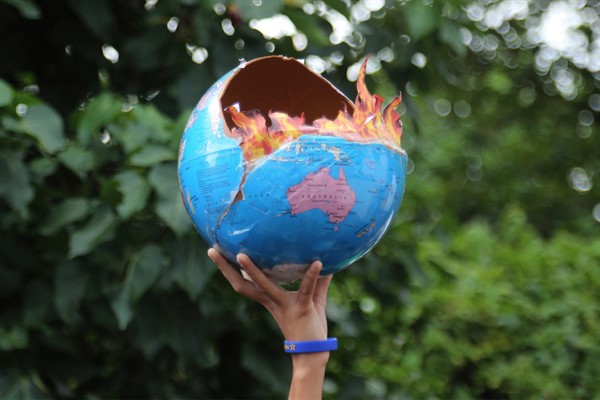Every few years, the U.S. National Intelligence Council, or NIC, gazes into its crystal ball and imagines the world 20 years hence. The latest installment, released on April 8, is a harrowing read. “Global Trends 2040: A More Contested World” anticipates an era even more chaotic and divided than our own, in which institutions at all levels struggle to adapt to abrupt demographic shifts, economic turbulence, runaway climate change and technological innovation. The COVID-19 pandemic, which has left governments thrashing and multilateral institutions flailing, is the shape of things to come.
“Global Trends 2040” is the seventh in a series of reports dating back to 1997 and the most explicit in conceding the arrival of a post-American world.* Going forward, it states, no single nation will be able to dominate “across all regions or domains.” Rather, “rival powers will jockey to shape global norms, rules, and institutions.” Geopolitical competition between the U.S. and China will set the parameters of international cooperation.
Making predictions is a risky business, of course. The NIC’s report is on firmest ground in discussing the four main trends—demographic, economic, climatic and technological—that will shape tomorrow’s world. The population story is by now familiar. Although growth will slow everywhere, the planet will add another 1.4 billion people, mostly in Africa and South Asia, to reach 9.2 billion in 2040. Humanity will also age rapidly, particularly in East Asia and Europe, and continue to urbanize, with two-thirds living in cities, up from 56 percent today. These trends will strain the capacity of developing countries’ governments to deliver infrastructure and services; test public finances in aging nations; and generate even larger flows of migrant labor—with attendant political tensions. Unfortunately, the dramatic development gains of the recent past are unlikely to be repeated. Indeed, “many countries will struggle to build on or even sustain decades of significant improvements in education, health, and poverty reduction.”

